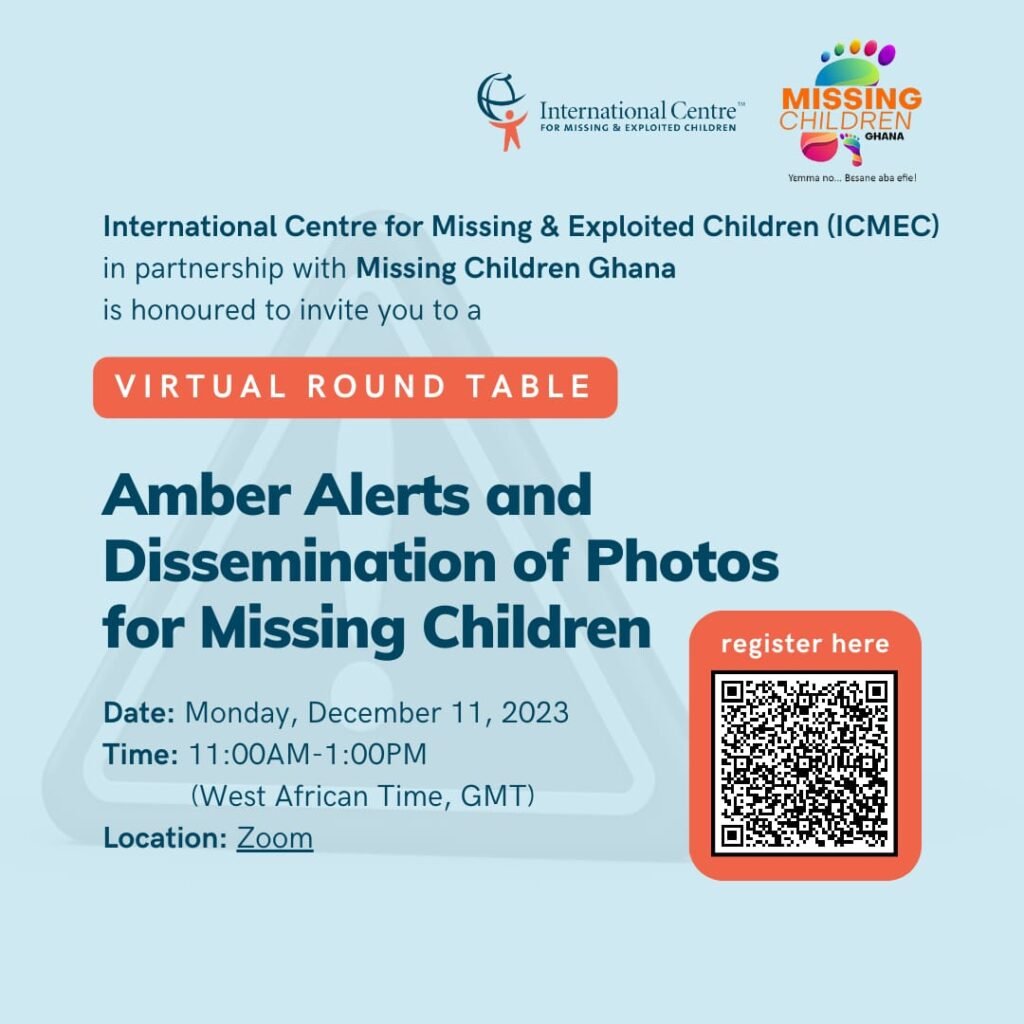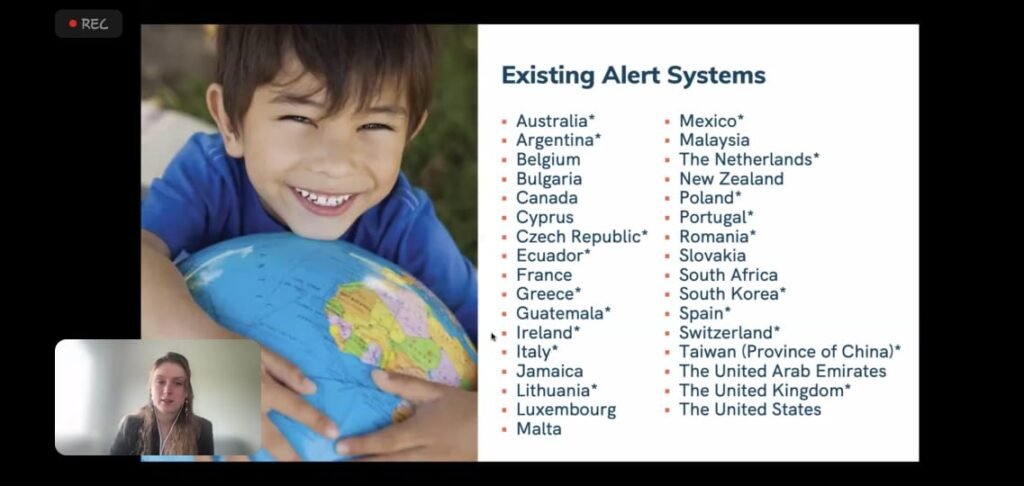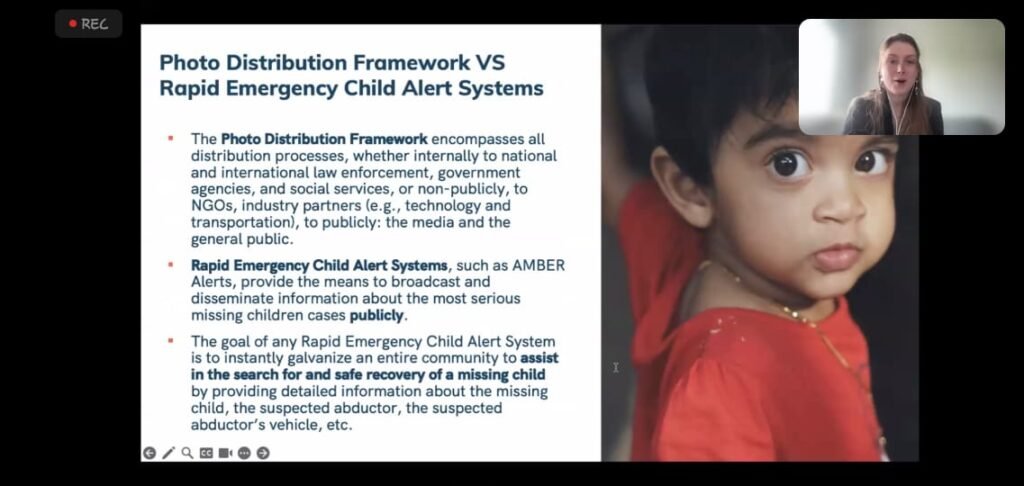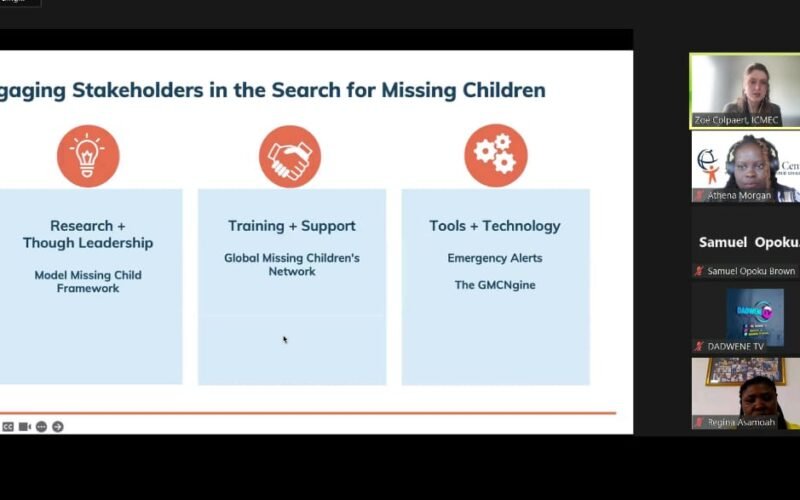Missing Children Ghana and the International Center for Missing & Exploited Children (ICMEC) have organized a groundbreaking virtual round table on the crucial topic of “Amber Alerts and Dissemination of Photos for Missing Children” as part of collaborative effort to address the pressing issue of missing children. The session, held on December 11, 2023, brought together participants from Ghana, Kenya, Nigeria, Cameroon, and the United States.
Zoé Colpaert, HEROES/Europe Program Manager at ICMEC, led the session, emphasizing the paramount importance of focusing on missing children and providing a comprehensive overview of Amber Alerts. Madam Colpaert delved into the history of Amber Alerts, the benefits of an alert system, existing alert systems, and the distinction between photo distribution frameworks and Rapid Emergency Child Alert Systems. Additionally, she highlighted the do’s and don’ts in the dissemination of photos of missing children.
According to Colpaert, a child going missing is a serious indicator of potential harm, making an immediate response crucial for a successful resolution and the well-being of the child. She underscored the significance of a rapid emergency child alert system, which has the power to mobilize entire communities for the swift search and safe recovery of a missing child. Child Alert Systems currently exist in 34 countries globally, with the West African region seeing the launch of the Amber Alert in Nigeria in September 2022, making it the second country on the continent to implement such a system after South Africa
Zoé Colpaert outlined the criteria for triggering an alert, emphasizing that alerts like Amber should only be used in specific, precise cases, approximately 3% of all missing children situations. Key criteria for launching an alert include imminent danger or serious harm to the child, sufficient information available for the public to assist in locating the child, and a risk assessment to determine the potential impact of the alert on the child’s safety. Crucially, Colpaert highlighted the need for careful consideration even after a missing child has been found. Efforts should be made to stop the circulation of the child’s name and photos to prevent further calls and reports, she noted.
Setting up an Amber Alert system in a country requires collaboration among various institutions, including the police, prosecutor’s office, government and policymakers, and relevant NGOs. Colpaert emphasized that Amber Alert is one tool within a robust procedure, requiring an all-encompassing strategy.
In a brief remark, Regina Asamoah, Founder and Executive Director of Missing Children Ghana, expressed optimism despite the absence of Amber Alerts in Ghana. She assured that her organization would continue collaborating with key stakeholders in the ongoing search for missing children. Ms. Asamoah highlighted the support of IPMC Ghana, allowing families to report missing children easily through their website, www.missingchildrenghana.com, and dedicated hotlines.
Ms. Asamoah remains positive that, through collaboration with the Ghana Police Service, the Department of Social Welfare and other relevant stakeholders, steps can be taken towards the launch of a Rapid Emergency Child Alert System, such as the Amber Alert, in Ghana.
The virtual round table discussion, moderated by Athena Morgan, Africa Regional Manager at ICMEC, provided participants with an opportunity to ask questions and share thoughts on best practices in the use of Amber Alerts and dissemination of photos of missing children. The collaborative effort reflects a commitment to safeguarding children and addressing the challenges surrounding their disappearance.
















